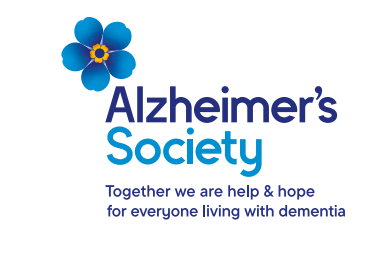A short film by the UK-based Alzheimer’s Society has generated a wide range of strong emotions from those with dementia and their families. In addition to the original video campaign embedded above, there is also an extended cut version and a profile of a couple who faced a heartbreaking FTD diagnosis.
The crux of the criticism comes from the film’s fatalistic point of view, framing dementia as a series of deaths that occur when a person loses the ability to do something they loved or remember something fundamental to their life, such as remembering their child’s name. With these series of “deaths”, one will need an organization for support, which is where the Alzheimer’s Society says it will be there for families impacted by dementia again and again.
George Rook, a patient activist living with dementia, has posted his eloquent rebuke of the film on his blog. It’s garnered a lot of support within the dementia community, and he has since written more posts related to the film that I encourage you to read.
Gail Gregory posted a moving response to the film, demonstrating how she has made adjustments in her life to live well with dementia.
The Guardian also wrote a column about the controversy, with the columnist agreeing that the film is uncomfortable to watch and concluding that “the advert went too far, but that one of the many issues with the public discourse about dementia is that it can be overly sanitised.”
Below is the Twitter/X post from the Alzheimer’s Society which I’m including so you can read the replies. As you can see, the video sparked a passionate discussion from those living with dementia who felt personally offended that they were being portrayed as the living dead when in fact they are living with dementia reasonably well.
In the Alzheimer’s Society response to the video’s controversy, it states the need for a societal wake-up call when it comes to dementia. It’s the leading cause of death in the UK and according to the organization, only 10 percent of people are aware of that sobering fact. I know I was not aware of that statistic.

If you’ve read my book, The Reluctant Caregiver, I think you’ll know my take on the film. While I can understand some may find the tone of the film harsh, I do agree with the need for a wake-up call. That’s why I wrote about the difficult moments in my caregiving experience, even if that has led to some reviews that the book is depressing.
In the US in particular, the financial impact of dementia is something many people are woefully unprepared for as they think Medicare will cover expenses. People don’t fully appreciate the challenges of living in place nor are they prepared for the astronomical cost of memory care. As for the “series of deaths” a person with dementia may experience, there is a real sense of loss when the disease takes away people’s abilities and aspects of their personality. As I wrote in my book, it did feel like an imposter had taken over my dad’s body. When he looked my mother straight in the eye and asked where she was by name, the heartbreak I experienced was worse than when I viewed his body in the morgue.
My mother dealt with the brunt of my father’s dementia. From what my mother, the eternal optimist, told me, there were not many good days. I’m sure she didn’t even share all of the horrific moments, though some she couldn’t hide, like when my father punched my mother in the jaw as she tried to get him ready for bed.
Once he was heavily drugged in the memory care center, his aimless shuffling through the hallways with the lost, vacant stare in his eyes did make him seem like a zombie in some ways. I know some people may find that portrayal offensive, but that was my honest reaction at the time.
I’m encouraged by those with dementia who continue to lead rewarding lives, and if I get the dreaded disease one day I hope I will follow their example. Unfortunately, that was not my family’s experience with the disease. It not only had a dire financial impact but I’m also convinced that the toll of caring for my father played some role in my mother ignoring her own health issues and being diagnosed with stage III colon cancer just six months after his death. I live alone and don’t have children, so for those of us without a support network, thriving with dementia may be a challenge.
We live in polarizing times when we refuse to recognize that multiple things can be true at once. There are some people living well with dementia, and maybe that should be the focus of the Alzheimer’s Society’s next awareness campaign. Kudos to these people and we should all be working towards the goal of improved treatments and better support resources so that living well with dementia becomes the norm and not the exception. But there are also those whose lives, and their family’s lives, are devastated by dementia. Those stories should not be buried because they make some people uncomfortable.
Each person with Alzheimer’s or another form of dementia will experience the disease in their own unique way. So will their families. We should encourage those from across the spectrum of dementia experiences to share their stories, the good, the bad, and the ugly.
Dealing with a new dementia diagnosis? Check out my dementia caregiver product recommendations. As an Amazon Associate I earn from qualifying purchases.

![Pageflex Persona [document: PRS0000038_00069]](https://memoriesproject.files.wordpress.com/2014/02/reluctant-caregiver-cover.jpg)






I’ve learned over the years that hard/harsh truths are really difficult for people to face. But it’s important for each person to speak truth, and I’m glad you did so with your experience.
Thank you Lori.